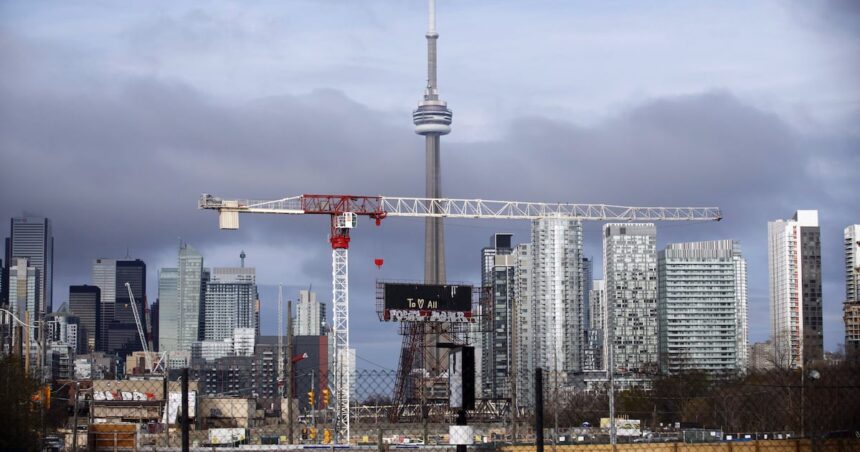The Toronto condo market is facing what industry insiders are calling a “perfect storm” of challenges, leading to a concerning rise in project cancellations across the Greater Toronto and Hamilton Area (GTHA). As I spoke with developers and analysts this week, a consistent theme emerged: the market downturn is significantly more severe than many had anticipated.
“We’re seeing a downturn that is really starting to wreck havoc,” explained Shaun Hildebrand, president of Urbanation, during our conversation at his downtown office. His firm’s latest data shows new condo sales plunging 49 percent year-over-year in the third quarter, with only 2,406 units sold across the region – the lowest Q3 sales figure in over a decade.
Walking through Yonge and Eglinton yesterday, I counted four sales centers with “postponed” signs where vibrant marketing displays once stood. The evidence of the slowdown is becoming increasingly visible throughout Toronto’s neighborhoods.
What’s driving this troubling trend? Developers point to a combination of persistent high interest rates, escalating construction costs, and municipal fee increases that have eroded project viability. Several industry veterans told me they’ve never witnessed such a challenging convergence of negative factors.
“We’re approaching a 30 percent cancellation rate for projects that launched prior to rate hikes,” said Jennifer Burton, a real estate analyst with Toronto Housing Insights. “That translates to thousands of planned housing units that simply won’t materialize in the coming years.”
The practical impact for Toronto residents is significant. Housing supply constraints, already a critical issue in our city, could worsen in the medium term. First-time buyers who put deposits on pre-construction units now face extended waits as developers postpone breaking ground.
Mark Davidson, who placed a deposit on a Liberty Village condo in 2022, shared his frustration: “They’ve pushed the completion date twice already. My rental lease keeps getting extended, and I’m stuck in limbo wondering if my unit will ever get built.”
The City of Toronto’s planning department confirms they’ve seen a marked increase in development timeline extension requests. Officials are concerned about reaching housing targets set by both provincial and federal governments.
Particularly worrying is the concentration of cancellations in transit-oriented developments near major subway expansions – precisely the type of housing growth Toronto has prioritized in its official plan.
Construction industry employment is feeling the effects too. The Building Industry and Land Development Association reports that approximately 5,400 construction jobs have been lost in the GTHA since last summer, with more layoffs expected if conditions don’t improve.
Financial institutions are becoming increasingly cautious about funding new projects. “The risk profile for condo developments has changed dramatically,” noted Rachel Williams, a senior lending officer at a major Canadian bank. “We’re requiring substantially more pre-sales and developer equity before releasing construction financing.”
Developers with active projects are adapting by offering significant incentives to maintain sales momentum. Walking through presentation centers across the city, I’ve observed unprecedented offers – from price discounts averaging 5-7% to upgraded finishes packages and reduced deposit structures.
Some industry observers see the current situation as a necessary market correction after years of speculative buying and unsustainable price growth. Toronto housing advocate Michael Simmons believes “the cancellations, while painful in the short term, might help rebalance the market toward more affordable options.”
Looking ahead, economists predict that the Bank of Canada’s recent rate cuts could begin to ease pressure by mid-2024, potentially reviving some postponed projects. However, the construction timeline for high-rise developments means that today’s cancellations will impact housing supply well into 2026 and beyond.
For prospective buyers, the situation warrants caution. Consumer protection advocates recommend scrutinizing developer track records and project financing before committing deposits to pre-construction units in the current environment.
As Toronto continues its rapid population growth, the gap between housing demand and supply appears likely to widen before it improves. Municipal leaders, developers, and housing advocates will need to collaborate on innovative solutions to address what could become an even more acute housing shortage in Canada’s largest city.
The silver lining, if one exists, may be that the market reset could eventually lead to more sustainable development practices and potentially more attainable housing prices – though that provides little comfort to those caught in today’s uncertain market.







